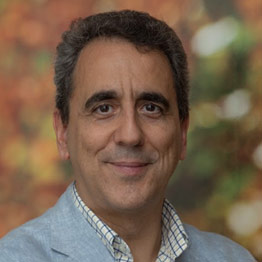Interdisciplinary study of human habits
Flexibility, cognitive enrichment and creativity
Habit is an aspect of behavior known both in the academic world and in the rest of society. financial aid Curiously, its defining features are discussed in both fields: does it make our behavior more rigid or more flexible, does it lock us into routines that are alien to our goals or does it encourage us to set new objectives? If one opts for the first of these terms in each of the questions, the human being is no different from a machine; if the alternative is accepted, he is capable of growing in a way that no other animal or artificial intelligence can.
This discussion is present in the academic world, depending on the discipline that deals with it: while for neuroscience and a good part of psychology, habit is an unconscious, rigid, automatic behavior that is alien to the end proposed by the agent, from certain philosophical currents it is a disposition that makes our behavior more flexible for the achievement of increasingly complex ends.
In recent years, the main researchers of this project have contributed to this discussion with theoretical and empirical publications in high impact journals and editorials, providing a notion of habitus compatible with the different fields of knowledge (Philosophy, psychology and neuroscience, fundamentally), and with the two interpretations mentioned above:
![]() The habit-learning is the disposition that, when acquired through cognitively enriched actions, makes the agent's behavior more flexible.
The habit-learning is the disposition that, when acquired through cognitively enriched actions, makes the agent's behavior more flexible.
![]() The habit-routineOn the contrary, it is cognitively impoverished and brings rigidity to behavior.
The habit-routineOn the contrary, it is cognitively impoverished and brings rigidity to behavior.
With the present project, focused on the individual dimension of the habit, we intend to:
Objectives
1
To contribute a theoretical framework to the neurobiology of behavioral disposition.
2
Explain the role of habits in freedom of choice and action.
3
Provide a clear definition of cognitive enrichment based on metacognition.
4
Investigate how creativity is possible through the acquisition of habits.
5
Create an explanatory framework from Philosophy that is applicable to psychology and neurobiology.
In addition, we will study the preeminence of rigid routines in some mental conditions, such as addiction and attention deficit hyperactivity disorder, and we will carry out an empirical research to analyze how habits participate in the creative process of prestigious artists. To this end, we will establish an interdisciplinary, public and private, national and international, researcher's network , and we will transfer our results to society through the Museo Universidad de Navarra.
At final, this project will help to clarify one of the distinctive features of human behavior, thanks to a deeply interdisciplinary approach, with an additional application to artistic creation and mental health.
Team

Researchers
→ Alfonso García Marqués
University of Murcia
→ José Antonio García Lorente
University of Murcia
→ Ángel Martínez Sánchez
San Antonio Catholic University of Murcia
→ Gonzalo Alonso Bastarreche
University of Navarra
→ Laura Bujalance Fernández-Quero
Rey Juan Carlos University
→ Isabel Morales Benito
International University of Catalonia
→ Nieves Acedo del Barrio
Institute for Culture and Society
Team of work
→ Mafalda Cardoso-Botelho Pena
Georgetown University
→ Clare Carlisle
King's College London


